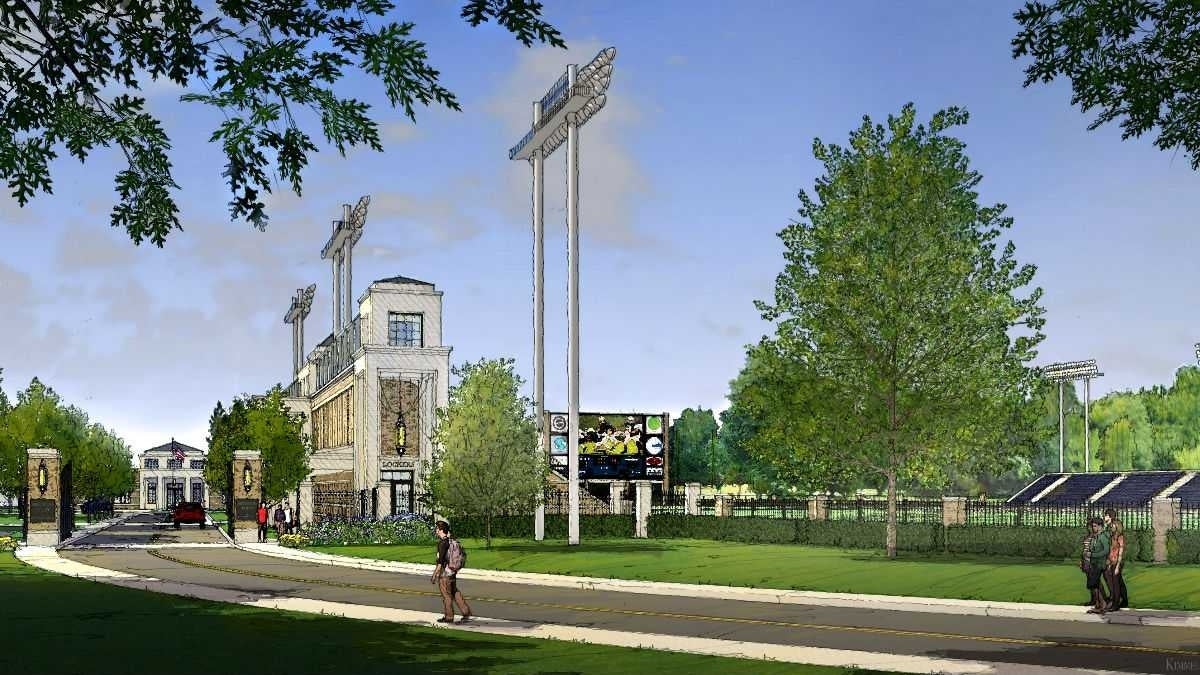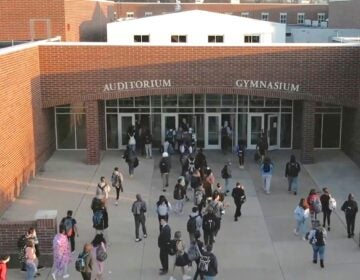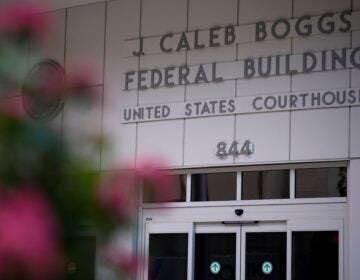Baynard Stadium upgrades back in Salesianum hands

An artist's rendering of shows what a renovated Baynard Stadium would have looked like under the Salesianum plan. (photo courtesy city of Wilmington)
Salesianum School was the only group to respond to a request for a public/private partnership to improve Wilmington’s 95-year-old sports facility.
Last fall, the all-male Catholic school offered to maintain, manage and revitalize the facility, and spend as much as $20 million on renovations. The school withdrew its offer after state Rep. Charles Potter, D-Wilmington, and some city council members proposed forming a task force and allowing the public to comment on the deal.
In response to Sallies withdrawal, and the demands from Potter and others, Mayor Mike Purzycki formed an 11-member working group in March to find a way to pay for repairs and improvements to the stadium. Earlier this month, Purzycki issued a request for partners to come forward within two weeks to join with the city in taking care of the stadium.
Salesianum was the only entity that responded.
“Salesianum has deep roots in our city’s history and cares just as deeply about Wilmington’s future,” Purzycki said in a statement. “I am looking forward to working with Salesianum on a plan that is beneficial to the city, the community and the school.”
Potter said everybody who wanted to participate in the process had that opportunity. “My job as an elected official is to vet everything that comes through my district and allow my people an opportunity to voice their opinion. We’ve had that opportunity,” Potter said. “Before that, this project had not been vetted at all.”
The stadium is currently owned by the city, but managed by the state Division of Parks and Recreation. It was built in 1922 and was last renovated in 1972. Last year, part of the bleachers were condemned after engineering assessments were conducted. The state estimates the stadium costs more than $150,000 to operate every year, and only generates about $50,000 in revenue, mostly by hosting events.
WHYY is your source for fact-based, in-depth journalism and information. As a nonprofit organization, we rely on financial support from readers like you. Please give today.





